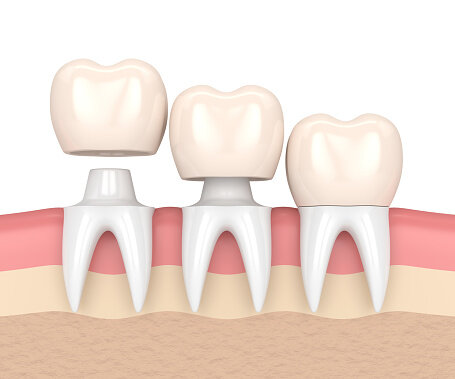A root canal is a dental procedure that is performed on an infected tooth. When the pulp of your tooth becomes infected, it will likely need a root canal. The pulp is a soft substance inside your tooth, below the enamel. It contains blood vessels and nerves, which is why an infection in the pulp of your tooth can become quite uncomfortable.
During a root canal procedure, our team will start by numbing the area. A sheet is placed over the tooth to protect adjacent teeth and to keep the target tooth clean. A small canal is drilled into the enamel of the tooth and the infected pulp is removed. The area is thoroughly cleaned to ensure that all infected material is gone so that it cannot spread to other areas of your oral cavity.
Once this is complete, the canal is filled with a rubber-like material to protect the nerves of your tooth. A temporary crown is then placed over the repaired tooth. You will then need to return in a few weeks when the permanent crown is ready. The temporary crown will be removed, and the permanent crown will be cemented into place.
Why Are Root Canals Performed?
The goal of a root canal is to save your natural tooth and relieve discomfort caused by the infection. When your natural tooth is lost, your gums are susceptible to recession and you can lose bone density underneath the tooth. The adjacent teeth are also more likely to suffer from decay and gum disease.
A root canal allows our professionals to preserve the roots and core of your tooth while also placing a crown over the damaged area. The crown allows you to use the tooth without fear of irritating the nerves of it. If you would like to learn more about root canals, contact our offices in Milwaukie or Oregon City today.


















